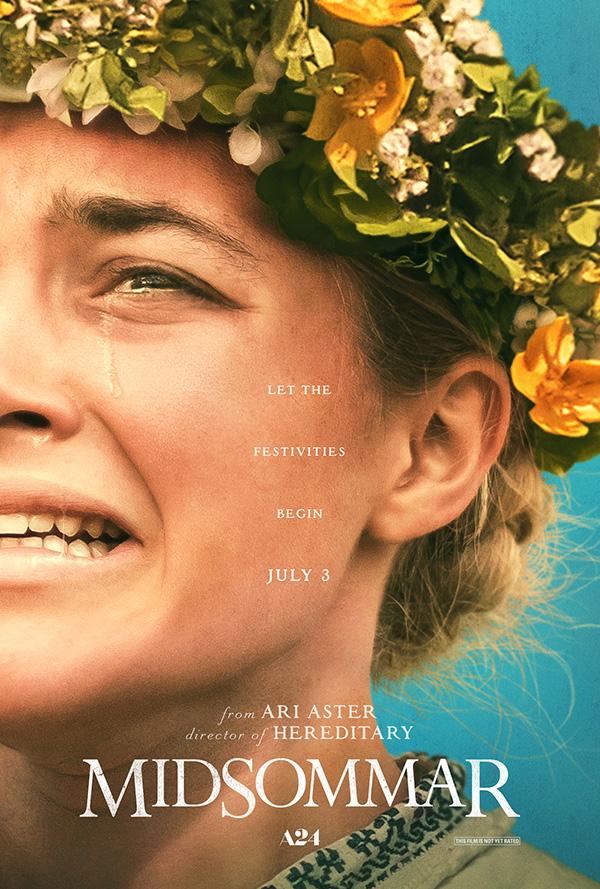Based on the director Ari Aster’s debut film Hereditary, a pleasant and relaxing movie going experience should not be anticipated anyone going into the film Midsommar. Right off the bat the audience experiences uneasiness as the main character, Dani, portrayed by Florence Pugh, loses her entire family. We don’t know much about the family, just that Dani’s sister struggles with depression and suicidal thoughts. At the start of the film, Dani’s little sister kills herself and their parents by leaking gas into the entire house. Her sister plays a very small role in the film, but she is pivotal to the events that eventually play out.
In the mix of dealing with the loss of her family, Dani is also going through tough times with her boyfriend Christian, played by Jack Reynor. The timing of her family’s death prolongs their inevitable breakup. In an attempt to salvage their relationship, Christian invites Dani to join him and the boys on their trip to a remote village in Sweden. This combination of relationship failure and loss of family creates a mood that continues for the rest of the film.
The group of adults have no idea what is in store for them. Aster takes no effort to make plot points in Midsommar subtle. Much like his feature-film debut last year with the epically upsetting Hereditary, Aster creates an extraordinary film that keeps you on the edge of your seat because you know that these characters are entering a bloodbath. Throughout the entire film, Aster lays out everything in store for his characters to the viewers. There are even scenes where we see vibrant murals on the walls of the commune that foreshadow what is going to happen.
The reason why the group decided to go to Sweden is because Pelle, portrayed by Vilhelm Blomgren, invited them to join him on his way back to his commune. Pelle is a classmate of Christian’s and he’s very excited that they have agreed to come visit because the midsummer festival is taking place, which only happens every 90 years. This festival is significant because the group becomes involved in the events and celebrations that are not so pleasant.
Aster does a fantastic job at creating a horror in complete daylight. The commune is in the middle of nowhere, and the sun never sets. The beautiful village is surrounded by grassy hills and everyone wears flower crowns and embroidered clothing. Everything seems peaceful and calming to the main characters. But they are blind to the unfathomable violence and brutality hiding around the corner.
Midsommar isn’t really too concerned with why or how things are happening. As the group gets welcomed warmly into the commune, they are invited to eat strange foods and drink strange things that none of them question. Later, they are even made to take drugs they don’t want and be a part of weird ceremonies that end with people walking off cliffs to their deaths; we even see their heads smash open once they hit the ground. The characters who witness the viscerally gory scene obviously react to the event, but apparently that’s not enough for them to want to leave the commune. Soon, even these characters start disappearing, and no one really cares until it’s too late. Aster seems to be laughing at how obvious he has made things for his characters and how they still remain utterly clueless. It is not until late into the movie that Christian finally asks the question we have all been waiting for: “What is going on?” But, he is not given an answer. Instead, the audience is further confused; the old man that he had asked claps in his face, sending Christian into a psychedelic trip.
By the end of the film, we are left uneasy yet sympathetic towards Dani and the choices she has made. Along the way, she finally finds a family that she feels connected to and loved by. But we are left to question if Dani’s actions are justified because of everything she has had to endure, including the deaths of her family. She is finally happy, but at what cost?
When going in to see Midsommar, get ready to buckle in because the running time of this film is 147 minutes, and it is not a film that has high-energy, fast-moving scenes. It is a mood piece that at times feels long and eerie, but the journey is alluring enough to keep you engaged and the wild and unnerving acting is spectacular.


